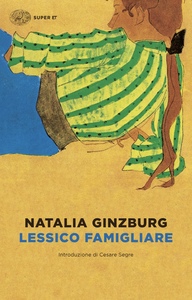Take a photo of a barcode or cover
emotional
reflective
medium-paced
emotional
informative
reflective
slow-paced
emotional
informative
medium-paced
challenging
informative
reflective
emotional
hopeful
informative
inspiring
medium-paced
reflective
relaxing
Entre la narració d'escenes mundanes en qualsevol família i la vida durant el feixisme i la guerra, per algun motiu m'ha enganxat una història sense cap gran atracció, un fil conductor clar ni capítols que la separen. No sé si ha sigut la llengua el que m'ha captivat, o el fet que hi he vist reflectida (en part) la meva família, o si simplement és perquè m'ha permès evocar una època i una ciutat desconegudes per a mi. Potser és perquè en aquest moment la família, la mort i el pas del temps em són molt propers. En qualsevol cas, aquesta lectura sempre serà important; tant perquè és el primer llibre en italià que llegeixo com perquè és l'obra que m'ha introduït a aquesta autora. Per alguna raó que desconec, aquests personatges (que ja deuen ser tots morts), les seves vides i la seva parla m'han resultat molt familiars; com si es tractés d'un record llunyà que no acabo de perdre ni de recuperar.
«Noi cerchiamo, nel corso della nostra vita, di raggiungere le cime, cioè di salire quanto più è possibile lontano dalla nostra fanciullezza. E io pure ho fatto così.»
«Noi cerchiamo, nel corso della nostra vita, di raggiungere le cime, cioè di salire quanto più è possibile lontano dalla nostra fanciullezza. E io pure ho fatto così.»
Romanzo di un racconto di una famiglia di origine ebraica al tempo delle leggi razziali con importanti personaggi storici e un ritmo narrativo molto vivo. 7
Es interesante cómo Ginzburg negocia con la memoria familiar desde una narración sin juicio, que no intenta ni enaltecer ni desgajar las políticas de su familia, su función es como de copista: captura momentos, asume los huecos, provee contexto. Escribe del pasado desde el pasado, no hay juicio, hay un retrato familiar que lo contiene todo para que seamos les lectores quien creemos o no empatías e identificaciones.



